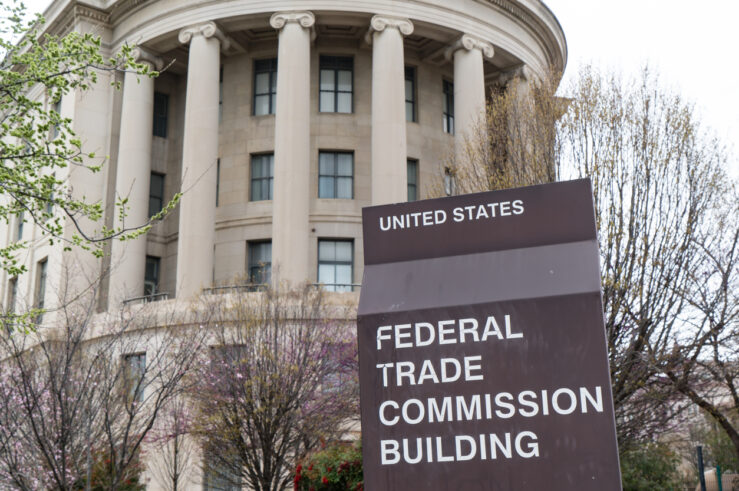Showing archive for: “Consumer Protection”
DMA Update: It’s Still a Privacy Danger
The European Union’s Digital Markets Act (DMA) has been finalized in principle, although some legislative details are still being negotiated. Alas, our earlier worries about user privacy still have not been addressed adequately. The key rules to examine are the DMA’s interoperability mandates. The most recent DMA text introduced a potentially very risky new kind ... DMA Update: It’s Still a Privacy Danger
FTC UMC Roundup – Welcome to the Press Tour
Welcome to the FTC UMC Roundup for June 10, 2022. This is a week of headlines! One would be forgiven for assuming that our focus, once again, would on the American Innovation and Choice Online Act (AICOA). I heard on the radio yesterday that it’s champion, Sen. Amy Klobuchar (D-MN), has the 60 votes it ... FTC UMC Roundup – Welcome to the Press Tour
How Tech Startups Could Be a Casualty of the War on Self-Preferencing
We will learn more in the coming weeks about the fate of the proposed American Innovation and Choice Online Act (AICOA), legislation sponsored by Sens. Amy Klobuchar (D-Minn.) and Chuck Grassley (R-Iowa) that would, among other things, prohibit “self-preferencing” by large digital platforms like Google, Amazon, Facebook, Apple, and Microsoft. But while the bill has ... How Tech Startups Could Be a Casualty of the War on Self-Preferencing
The FTC UMC Roundup – May 27 Edition
Welcome to the Truth on the Market FTC UMC Roundup for May 27, 2022. This week we have (Hail Mary?) revisions to Sen. Amy Klobuchar’s (D-Minn.) American Innovation and Choice Online Act, initiatives that can’t decide whether they belong in Congress or the Federal Trade Commission, and yet more commentary on inflation and antitrust, along ... The FTC UMC Roundup – May 27 Edition
The FTC UMC Roundup–A Weekly Review
Welcome to the FTC UMC Roundup, our new weekly update of news and events relating to antitrust and, more specifically, to the Federal Trade Commission’s (FTC) newfound interest in “revitalizing” the field. Each week we will bring you a brief recap of the week that was and a preview of the week to come. All ... The FTC UMC Roundup–A Weekly Review
How the FTC Could, but Won’t, Use Its Rulemaking Authority to Allow Aftermarket Parts
We used to have a robust aftermarket for non-original equipment manufacturer (OEM) automobile repair parts and “independent” repair services, but car companies have increasingly resorted to design-patent protection to prevent competition in the supply of cosmetic repair parts such as bumpers, hoods, panels, and mirrors. The predictable and intended consequence has been to raise prices ... How the FTC Could, but Won’t, Use Its Rulemaking Authority to Allow Aftermarket Parts
FTC Rulemaking and Unintended Consequences
For obvious reasons, many scholars, lawyers, and policymakers are thinking hard about whether the Federal Trade Commission (FTC) has authority to promulgate substantive “unfair methods of competition” (UMC) regulations. I first approached this issue a couple of years ago when the FTC asked me to present on the agency’s rulemaking powers. For my presentation, I ... FTC Rulemaking and Unintended Consequences
The FTC Abandons the Free Market
In December 2021, the Federal Trade Commission (FTC) released its statement of regulatory priorities for 2022, which describes its intention to expand the agency’s rulemaking activities to target “unfair methods of competition” (UMC) under Section 5 of the Federal Trade Commission Act (FTC Act), in addition to (and in some cases, presumably in place of) ... The FTC Abandons the Free Market
UMC Rulemaking After Magnuson-Moss: A Textualist Approach
Introduction The Federal Trade Commission’s (FTC) ability to conduct substantive rulemaking under both its “unfair methods of competition” (UMC) and “unfair and deceptive practices” (UDAP) mandates was upheld by the U.S. Court of Appeals for the D.C. Circuit in 1973’s National Petroleum Refiners Association v. FTC. Nonetheless, the FTC has seldom exercised this authority with ... UMC Rulemaking After Magnuson-Moss: A Textualist Approach
The Paradox of Choice Meets the Information Age
Barry Schwartz’s seminal work “The Paradox of Choice” has received substantial attention since its publication nearly 20 years ago. In it, Schwartz argued that, faced with an ever-increasing plethora of products to choose from, consumers often feel overwhelmed and seek to limit the number of choices they must make. In today’s online digital economy, a ... The Paradox of Choice Meets the Information Age
Lina Khan’s Privacy Proposals Are at Odds with Market Principles and Consumer Welfare
The Federal Trade Commission (FTC) is at it again, threatening new sorts of regulatory interventions in the legitimate welfare-enhancing activities of businesses—this time in the realm of data collection by firms. Discussion In an April 11 speech at the International Association of Privacy Professionals’ Global Privacy Summit, FTC Chair Lina Khan set forth a litany ... Lina Khan’s Privacy Proposals Are at Odds with Market Principles and Consumer Welfare
FTC UMC Rulemakings Would Prove Legal Failures
Federal Trade Commission (FTC) competition rulemakings, like spring, are in the air. But do they make policy or legal sense? In two commentaries last summer (see here and here), I argued that FTC competition rulemaking initiatives would not pass cost-benefit muster, on both legal grounds and economic policy grounds. As a legal matter, I stressed ... FTC UMC Rulemakings Would Prove Legal Failures










